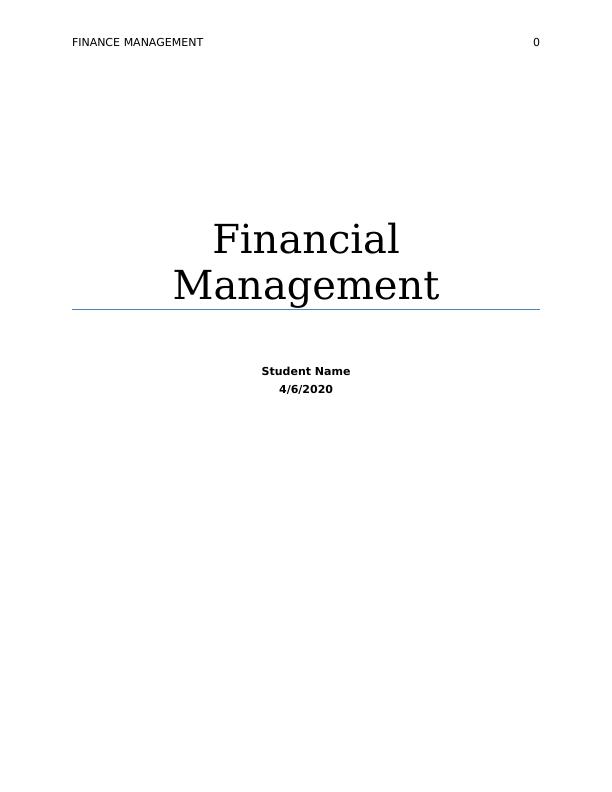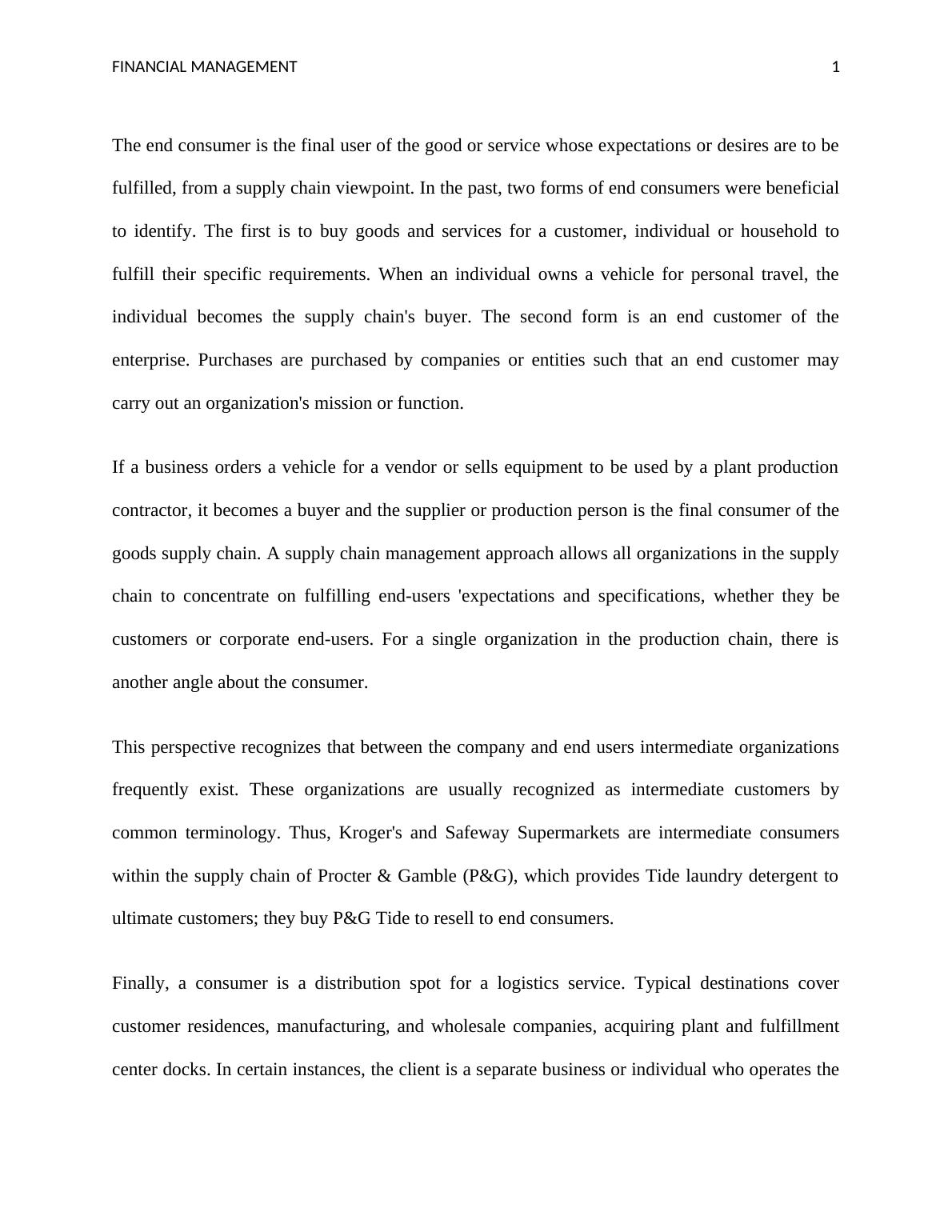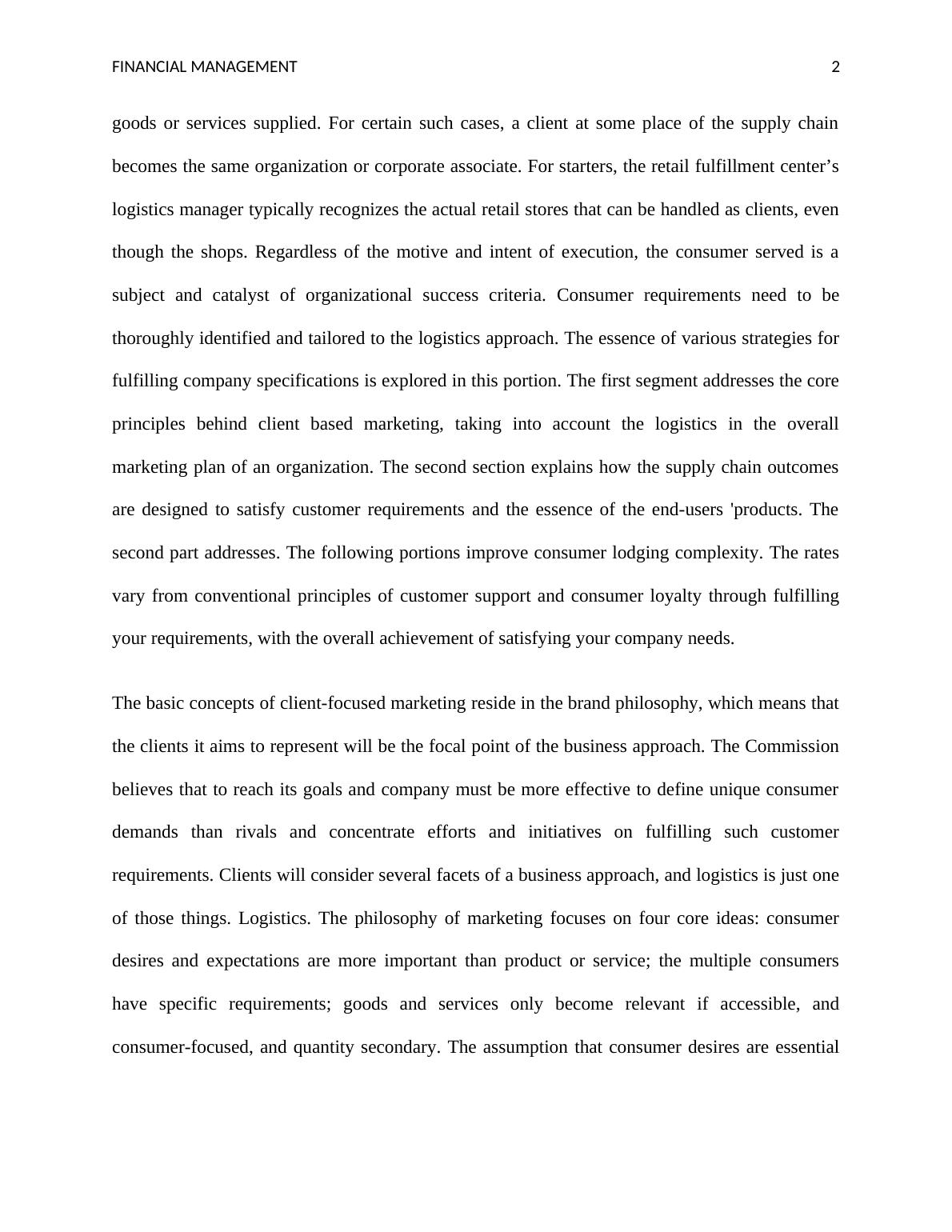The End Consumer | Financial Management
Discussing the development and improvement of customer accommodation strategies by analyzing the satisfaction and quality model, with practical examples from a familiar company.
9 Pages2485 Words18 Views
Added on 2022-09-09
The End Consumer | Financial Management
Discussing the development and improvement of customer accommodation strategies by analyzing the satisfaction and quality model, with practical examples from a familiar company.
Added on 2022-09-09
ShareRelated Documents
End of preview
Want to access all the pages? Upload your documents or become a member.
TDMT 2251 - Logistics Processes (CITT) | Supply Chain
|14
|3154
|22
AIB standard Supply Chain Networks in Operation Management Report 2022
|23
|4151
|20
Report on Logistic Management
|9
|2580
|60
Management Capstone docx.
|14
|2859
|28



